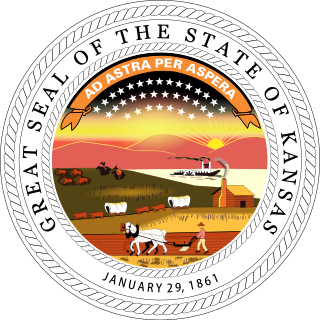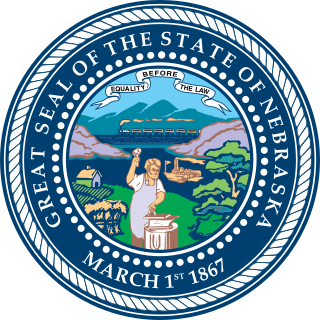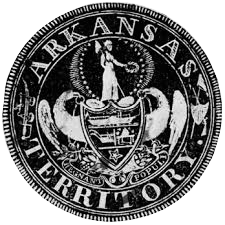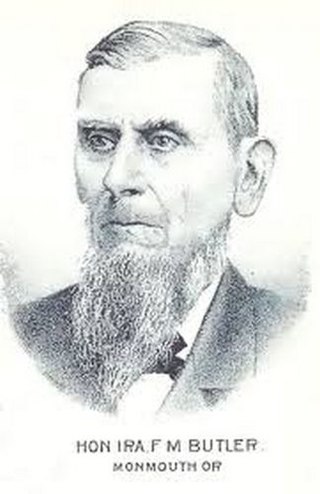Related Research Articles

Butler County is a county in the U.S. state of Nebraska. As of the 2020 United States Census, the population was 8,369. Its county seat is David City. The county was created in 1856 and organized in 1868.

The Delaware General Assembly is the legislature of the U.S. state of Delaware. It is a bicameral legislature composed of the Delaware Senate with 21 senators and the Delaware House of Representatives with 41 representatives. It meets at Legislative Hall in Dover, Delaware, convening on the second Tuesday of January of odd-numbered years, with a second session of the same Assembly convening likewise in even-numbered years. Normally the sessions are required to adjourn by the last day of June of the same calendar year. However the Governor can call a special session of the legislature at any time.

The Georgia General Assembly is the state legislature of the U.S. state of Georgia. It is bicameral, consisting of the Senate and the House of Representatives.

The North Carolina General Assembly is the bicameral legislature of the state government of North Carolina. The legislature consists of two chambers: the Senate and the House of Representatives. The General Assembly meets in the North Carolina Legislative Building in Raleigh, North Carolina.

The Indiana General Assembly is the state legislature, or legislative branch, of the state of Indiana. It is a bicameral legislature that consists of a lower house, the Indiana House of Representatives, and an upper house, the Indiana Senate. The General Assembly meets annually at the Indiana Statehouse in Indianapolis.

The Territory of Wisconsin was an organized and incorporated territory of the United States that existed from July 3, 1836, until May 29, 1848, when an eastern portion of the territory was admitted to the Union as the State of Wisconsin. Belmont was initially chosen as the capital of the territory. In 1837, the territorial legislature met in Burlington, just north of the Skunk River on the Mississippi, which became part of the Iowa Territory in 1838. In that year, 1838, the territorial capital of Wisconsin was moved to Madison.

The Provisional Government of the Territory of Jefferson was an extralegal and unrecognized United States territory that existed in the Pike's Peak mining region from October 24, 1859, until it yielded to the new Territory of Colorado on June 6, 1861. The Jefferson Territory, named for Founding Father and third United States president Thomas Jefferson, included land officially part of the Kansas Territory, the Nebraska Territory, the New Mexico Territory, the Utah Territory, and the Washington Territory, but the region was remote from the governments of those five territories.

The Kansas Legislature is the state legislature of the U.S. state of Kansas. It is a bicameral assembly, composed of the lower Kansas House of Representatives, with 125 state representatives, and the upper Kansas Senate, with 40 state senators. Representatives are elected for two-year terms, senators for four-year terms.

The Legislature of the State of Oklahoma is the state legislative branch of the U.S. state of Oklahoma. The Oklahoma House of Representatives and Oklahoma Senate are the two houses that make up the bicameral state legislature. There are 101 state representatives, each serving a two-year term, and 48 state senators, who serve four-year terms that are staggered so only half of the Oklahoma Senate districts are eligible in each election cycle. Legislators are elected directly by the people from single member districts of equal population. The Oklahoma Legislature meets annually in the Oklahoma State Capitol in Oklahoma City.

The Utah State Legislature is the state legislature of the U.S. state of Utah. It is a bicameral body, comprising the Utah House of Representatives, with 75 state representatives, and the Utah Senate, with 29 state senators. There are no term limits for either chamber.
The Nebraska Territorial Legislature was held from January 16, 1855, until February 18, 1867, in Omaha City, Nebraska Territory.
The Nebraska House of Representatives was the lower house of the Nebraska Legislature during the days when Nebraska was a territory from 1854 to 1867 and then again when Nebraska was a state from 1867 until 1937. In 1934, Nebraska voters amended the Nebraska Constitution to reconfigure the Nebraska Legislature to a unicameral system. This system became effective for the 1937 legislative session. Beginning as a territorial lower house in 1854, it had 26 members; this number was raised to 39 members at the time of the first state constitution's promulgation in 1866, and the second state constitution in 1875 limited membership in the House at 100 members, a limit which would be filled by 1881. The last representatives were elected to a two-year term in 1934 and began their service with the final legislative session in 1935.

Oregon's Territorial Legislature was a bicameral legislative body created by the United States Congress in 1848 as the legislative branch of the government of the Oregon Territory. The upper chamber Council and lower chamber House of Representatives first met in July 1849; they served as the region's legislative body until Oregon became a state in February 1859, when they were replaced by the bicameral Oregon State Legislature.
Significant events in the history of Omaha, Nebraska, include social, political, cultural, and economic activities.

The Nebraska Legislature is the legislature of the U.S. state of Nebraska. The Legislature meets at the Nebraska State Capitol in Lincoln. With 49 members, known as "senators", the Nebraska Legislature is the smallest state legislature of any U.S. state. A total of 25 members is required for a majority; however, in order to overcome a filibuster, a two-thirds vote of all members is required, which takes 33 votes.

The General Assembly of the Territory of Arkansas, commonly known as the General Assembly, was the legislature of the U.S. territory of Arkansas, from 1819 to 1835. The General Assembly was directly elected, albeit on a restricted franchise. Its legislative power was subject to veto by the appointed Governor.

Ira Francis Marion Butler was an American politician who served in the Oregon Territorial House of Representatives and the Oregon House of Representatives as a member of the Democratic Party. He served as Speaker of the Oregon House of Representatives from 1857 to 1858, which was the last session before Oregon's statehood. Before immigrating to Oregon, Butler served as sheriff of Warren County, Illinois, and was circuit court clerk for Stephen A. Douglas when he was an Illinois judge. After moving to Oregon in 1853, he operated a farm in Polk County and was later the county's judge.

Nathaniel Holly Gates, also known as Colonel Gates for most of his life, (1811–1889) was an American pioneer lawyer and Oregon state legislator. He was an active Democrat throughout his life. He served four terms in Oregon's territorial legislature. This included one term as Speaker of the Oregon House of Representatives during the 1858 legislative session. After Oregon became a state in 1859, he served one two-year term in the Oregon House of Representatives and one four-year term in the Oregon State Senate. Before immigrating to Oregon, Gates lived and worked as a lawyer in Ohio and Iowa. After moving to Oregon, he settled in The Dalles and opened a law practice there. He helped develop that community and served as the city's mayor five times in non-consecutive terms.
References
- 1 2 3 4 State of Nebraska (2023). Nebraska Blue Book 2022-23. pp. 394–395.
- ↑ Andreas, A. T. (1882). "The First Legislature". History of the State of Nebraska. The Western Historical Company.
- 1 2 "Territorial Legislatures". The Nebraska Blue Book and Historical Register 1915 (PDF). pp. 21–29.
- ↑ Andreas, A. T. (1882). "The Florence Secession". History of the State of Nebraska. The Western Historical Company.
- ↑ Andreas, A. T. (1882). "The Florence Secession". History of the State of Nebraska. The Western Historical Company.
On the morning of January 7, 1858, ...[t]he Speaker, Mr. James H. Decker, withdrew from the House, with his friends.... The following morning, Friday, the 8th, the House met, and, on motion of Mr. Donelan, to adjourn to meet at Florence the next day, the session was declared adjourned by Speaker Decker. Thereupon all but thirteen members quitted the chamber.... The seceding branch met at Florence, from which place they addressed a resolution to Acting Gov. Cuming ...over the signatures of 'J. H. Decker, Speaker of the House of Representatives,' and 'Leavitt L. Bowen, President of the Council'....
- ↑ Andreas, A. T. (1882). "The Florence Secession". History of the State of Nebraska. The Western Historical Company.
On the morning of January 7, 1858, ...[t]he Speaker, Mr. James H. Decker, withdrew from the House, with his friends.... Thirteen of the members remained in session, and... Mr. Morton was chosen Speaker pro tem...
- ↑ Andreas, A. T. (1882). "The Florence Secession". History of the State of Nebraska. The Western Historical Company.
The following morning, Friday, the 8th, the House met, and, on motion of Mr. Donelan, to adjourn to meet at Florence the next day, the session was declared adjourned by Speaker Decker. Thereupon all but thirteen members quitted the chamber. Mr. Morton then nominated Mr. Poppleton as Speaker pro tem., and the minority adjourned to meet at the regular place of holding session, on the next day at 9 A.M.
- 1 2 Morton, J. Sterling; Watkins, Albert (1918). History of Nebraska: A Revised Edition. Western Publishing and Engraving Company. p. 287.
- ↑ "Nebraska Constitution of 1866, Article III, Section 17".
- 1 2 "Constitution of the State of Nebraska, Article V, Section 18". The Nebraska Blue Book and Historical Register 1915 (PDF). p. 168.
- ↑ State of Nebraska (1936). The Nebraska Blue Book 1936 (PDF). p. 167.
From 1877 to date, both houses have been republican, except in 1891, 1893, and 1907 [sic, this should have said 1897], when the populist and democratic parties controlled both houses; in 1909, 1911 , 1915, 1917, 1933 and 1935 when both houses were controlled by the democratic party; and in 1913 when the House was democratic and the Senate republican
